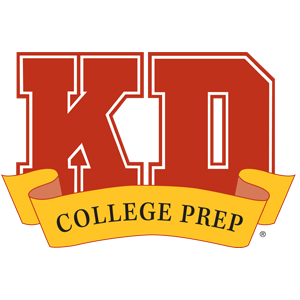Everyone knows that college tuition tends to be very expensive, but the family doesn’t necessarily have to be the one that pays the bill. When planning for college, it’s important to know about merit-based scholarships, which are a form of financial assistance that some colleges and private organizations offer based on merit alone. In other words, your family’s income doesn’t have to fall below the poverty line to qualify.
But before you start imagining yourself swimming in piles of scholarship money like Scrooge McDuck, we need to have a quick reality check. Merit scholarships don’t happen by accident—it can take a lot of hard work, time, and talent to show that you deserve one. But don’t be discouraged! With the right guidance and a game plan, we’ve seen many students succeed in earning merit scholarships over the years. In this post, we provide 20 tips for how to maximize your odds of earning this type of scholarship, plus a few resources for where to start the process.
Boost Your Chances of Earning a Merit-Based Scholarship
1. Get to know the types of merit aid
Merit aid encompasses many types of scholarships that do not limit access based on financial need. Some colleges and private entities award merit scholarships based on academic accomplishments, while others award scholarships to talented athletes. The arts, community service, extracurriculars, and leadership provide the basis for additional types of merit aid. It’s ideal to play to your strengths and be consistent with the types of activities you do throughout your high school years.
2. Don’t wait until senior year to start looking for scholarships
Students often wait until their junior or senior year to get serious about scholarship applications. Yet, it’s actually never too early to begin applying—including for merit aid. In fact, you can find scholarship opportunities designed for students in kindergarten, as well as those at all grade levels throughout elementary, middle, and high school.
3. Identify private merit scholarship opportunities
The majority of merit aid is offered by colleges and universities. However, there are also quite a few privately funded merit scholarships offered by entities like foundations and companies. You can find local, regional, and national scholarship opportunities by searching through scholarship databases, some of which offer a filter for merit aid.
4. Research local scholarship opportunities
The great thing about local scholarship opportunities is that there will be less competition for them compared to national scholarships. Check with your guidance counselor to learn about local scholarships you may qualify for. In addition, you can visit your town’s public library and ask the librarians for help identifying local merit scholarships.
5. Fill out the FAFSA
While some merit aid is awarded entirely for accomplishments alone, other scholarships are awarded based on a combination of financial need and merit. This isn’t the only reason why you should fill out the FAFSA, however. The FAFSA is also the only way to qualify for federal aid.
One example of a scholarship that considers financial need and merit is the Gates Millennium Scholarship, which selects 1,000 scholars each year to award an average of nearly $13,000 each. Selected scholars must be from a minority background and have demonstrated financial need. In addition, students typically fall within the top 10% of their class.
6. Research the application process for different colleges and universities
At some schools, there is no need to submit a separate application for merit aid; you’ll automatically be considered for it when you apply for admission. At others, however, you will indeed need to submit a separate application. Know the process for your chosen school to avoid missing out on opportunities.
7. Take the PSAT/NMSQT® test
In your junior year, you should take the PSAT/NMSQT test, which will be offered at your school (or a nearby school if you are homeschooled). Taking this test is the only way to potentially qualify for the National Merit Scholarship Competition. Be sure to spend plenty of time preparing for it because you have to score in top ½ percent of your state to qualify as a Semifinalist. To learn more about the different steps in this competition, read our National Merit Scholarship Guide.
8. Consider schools in more remote areas
While some adventurous students may travel to the other side of the country or even the world to attend college, many others prefer to go to school close to home. This means that colleges in less urbanized areas may offer less competition for merit aid.
9. Don’t wait until the last minute to submit your application
While you’re researching scholarship opportunities, be sure to make a note of the deadline. It’s not in your best interests to wait until 10 minutes before the deadline to submit your scholarship application. Anything could happen—a power outage, technical glitch, or last-minute realization that you don’t have all the required information—to make your application late.
Instead, aim to submit your applications as soon as possible—even months ahead of the deadline. That way, you won’t find yourself in a situation in which you’re frantically trying to submit five applications in one week while also preparing for an exam or writing a paper for a class.
10. Avoid targeting only the most selective institutions
In general, it’s usually a bad idea to limit your college list to the institutions at the top of U.S. News’ rankings (yes, even if you’re a valedictorian or perfect scorer). Plus, many families already know that selective institutions, such as the Ivies, do not award merit aid. So why not add a few colleges to your list that have outstanding academics and still offer merit scholarships?
We’re not saying you shouldn’t apply to an Ivy. We just want to emphasize that your list should extend beyond what we consider “reach” schools. Read more about how to build a balanced college list.
11. Work with a college counselor to write great scholarship/admissions essays
Not all merit scholarships (or even admissions departments) require students to submit essays along with their applications. When an essay is required, you should put plenty of effort into it. Consider connecting with a college admissions expert for guidance during the writing and editing process. Read more about KD’s college counseling services.
12. Write unique essays for every application
Although it may be tempting, you should not submit one essay to multiple organizations—even if two or more of them are requesting similar essays. Instead, draft a unique essay for every application.
Look at the extra work as a way of hedging your bets; even if one essay doesn’t get the job done, another essay may stand a better chance of making a great impression and budget your time accordingly.
13. Know your audience for every application
Before writing an essay or filling out an application, take the time to research the entity offering the scholarship. What does the organization care deeply about? What are its mission and values? To whom has it awarded scholarships in the past, and why? Look for ways of adjusting your application and essay accordingly to make yourself a competitive candidate.
14. Enroll in a test prep program
Test scores are an important consideration for many merit-based scholarships. To improve your chances of getting great test scores, consider enrolling in a test prep program. It’s ideal to begin working through a structured program as early as 9th grade. However, even if you’re past this point, a test prep program can help you work toward higher scores.
15. Get involved with your community
Many awarding organizations like to see applicants who demonstrate a commitment to community service. Volunteering once or twice is a good start, but it’s even more impressive if you perform community service consistently throughout your high school years for the same organization or group of organizations.
16. Demonstrate leadership skills
Serving as a volunteer is one way to demonstrate that you have leadership potential. Extracurriculars can also be helpful. In 9th grade, join a few different extracurriculars and see what appeals most to you. Then, try to stick with the ones you’ve chosen throughout high school. With continued participation, you may have the opportunity to take on leadership roles within those clubs.
17. Do your best to maintain a stellar GPA
While one merit scholarship may consider a 3.0 acceptable, another may require a minimum of a 3.8. Although requirements can vary, focusing on your grades is never a bad idea. Not only will it position you to be a strong merit scholarship candidate, but a great GPA will also help you with college admissions.
18. Don’t neglect small scholarship opportunities
Many students ignore smaller awards of $500 or so, choosing instead to focus on applying to scholarships worth thousands. Yet, the larger the scholarship is, the more competition it will have. In addition to applying for larger scholarships, you should submit applications to smaller merit awards. Winning a few of these can make a dent in your college expenses.
19. Build relationships with teachers and other mentors
Some merit scholarships (as well as some college admissions processes) require recommendation letters from teachers or similar individuals. It’s worth your while to not only make a good impression in class but also to actively strive to build strong working relationships with teachers and other mentors (e.g., supervisors at volunteer positions). The better they know you, the more positive things they’ll be able to write about you.
20. Stay organized with your application materials
Organization is essential. If you apply to many different merit-based awards, it’s all too easy to lose track of application materials, essays, documents, and other items. Find an organization system that works for you and stick with it. (And be sure to keep a watchful eye on those deadlines.)
Lists of Merit-Based Scholarships
Now that you have a better idea of how to increase your chances of landing a scholarship or two, it’s time to get to work applying. There are many merit scholarships out there. These websites will point you in the right direction:
What is considered a merit-based scholarship?
A merit-based scholarship is awarded based on pre-defined eligibility criteria like a student’s GPA, test scores, or other skills and abilities. It’s sometimes thought that merit aid is only awarded on the basis of academic achievement, but in fact, a student might also be eligible based on their community service or extracurricular involvement or based on their athletic, artistic, special interest, or leadership ability.
In other words, a merit scholarship might be awarded based on a wide variety of attributes but not based on financial need.
What are the benefits of earning this type of scholarship?
The most obvious benefit of earning merit aid is winning free money for college. Another benefit of having these types of scholarships available is that they are based on eligibility criteria that students can control. Students can’t control their household finances (for need-based scholarships), but they can work hard to become eligible for merit-based aid.
Where can you apply for merit-based scholarships?
We’ve listed a few places to start your search above, but we should also note that many colleges and universities offer merit scholarships. In some cases, students are automatically considered for these scholarships from their college without having to submit a separate application. You can contact the financial department of your school to determine the availability of aid and process for applying, if applicable. In addition, you can apply to merit scholarships offered by private entities, such as foundations, companies, community programs, and other organizations.
Which colleges give out the most merit scholarships?
The following information is applicable to the 2023 to 2024 academic year. These colleges awarded merit aid to significant percentages of their student body:
- Manhattan University: 65%
- Utah Tech University: 59%
- Fairfield University: 56%
- The New School: 56%
- Samford University: 55%
- University of Denver: 55%
See the full list here.
Which colleges don’t give out any merit scholarships?
Unfortunately, none of the eight Ivy League colleges (Brown, Columbia, Cornell, Dartmouth, Harvard, UPenn, Princeton, or Yale) offer merit scholarships. The same is true of other highly selective schools, such as MIT and Stanford. Because these schools are so selective, it could be said that all of their admitted students are high achievers academically, and all or most would likely qualify for merit aid.
Instead, these schools tend to put their financial aid and scholarship dollars toward need-based awards that make high-quality education accessible to students from underserved or disadvantaged backgrounds.
What are the different types of merit aid?
Within the category of merit scholarships, there are different subcategories. These include merit scholarships based on:
- Academics
- Athletics
- Artistic ability (essays, fine art, etc.)
- Test scores
- Personal achievements
- Leadership skills
- Community service
- Competitions
What is a good GPA or test score range for merit scholarships?
Each merit scholarship establishes its own minimum requirements for students’ GPAs and test scores. In fact, some non-academic merit scholarships may not even have minimum requirements for academic achievement but rather may establish minimum requirements for another type of achievement. It’s ideal to simply try to do your best in school and prepare thoroughly for the tests to put yourself in a strong position.
Can a test score help me earn merit scholarships?
Yes, some merit scholarships do require students to demonstrate a minimum test score, and so doing well on the tests may help you win free money for college. It’s usually a good idea to strive to submit competitive test scores, even when scores are an optional aspect of the application. Sometimes, you’re competing with a large pool of other applicants, so we recommend doing whatever you can to strengthen your application. We also explain in #7 above how taking certain tests can help you qualify for merit scholarship competitions.
Need help preparing for college?
At KD College Prep, we have helped over 85,000 students make their college dreams a reality. If earning a merit scholarship is one of your student’s goals, we can help. Through better test scores and stronger applications, former KD students have earned millions to help pay their way through college.
Explore our test prep and college counseling programs, or schedule a free consultation with an advisor, to learn how we can help you.














































